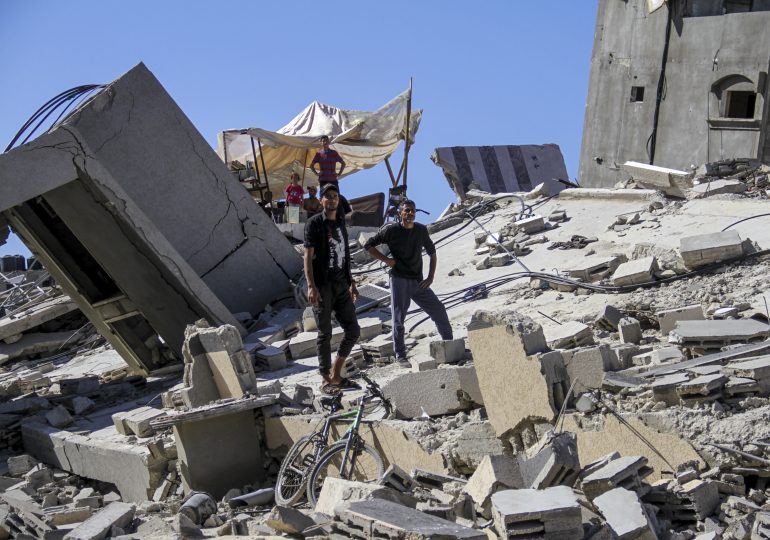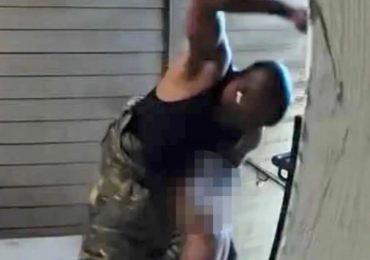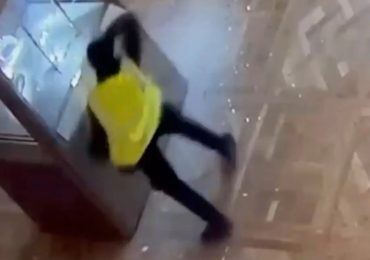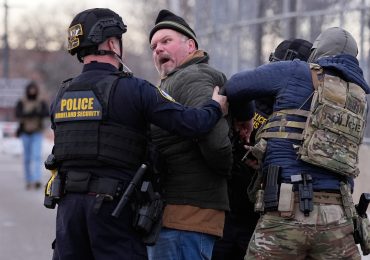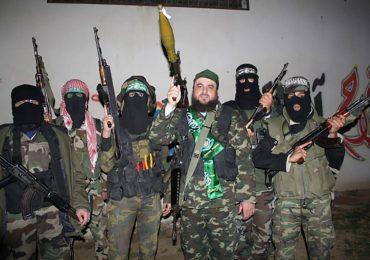Mass graves with hundreds of bodies were discovered last weekend at Nasser Hospital in Khan Younis and Al-Shifa Hospital in Gaza City, prompting serious concerns about war crimes, according to the OHCHR, the U.N.’s human rights office.
[time-brightcove not-tgx=”true”]
Much remains unknown about the victims, but the discovery of the bodies comes after Israeli troops ended their two-week operation at Al-Shifa Hospital in early April. The hospital, which was once the main tertiary facility in the region before Oct. 7, has since been reduced to “an empty shell.” Troops also similarly raided Nasser Hospital, claiming that their intelligence showed Hamas was holding hostages in the medical center.
“Hospitals are entitled to very special protection under international humanitarian law. And the intentional killing of civilians, detainees and others who are hors de combat [out of combat or action] is a war crime,” said Volker Türk, U.N. High Commissioner for Human Rights. Attacks on hospitals are one of six grave violations the U.N. Security Council monitors and reports. Hospitals can lose their special protections, however, if “they are used by a party to the conflict to commit, outside their humanitarian functions, an ‘act harmful to the enemy,’” according to the International Committee of the Red Cross. What constitutes an act that is harmful to the enemy is not defined under international humanitarian law. However, the Red Cross does list “the placing of a medical establishment or unit in proximity to a military objective with the intention of shielding it from enemy’s military operations” as an example.
Read More: The Struggle to Save Lives Inside Gaza’s Hospitals
Türk has called for an independent investigation into the matter, and reiterated his support for an immediate ceasefire. The European Union backed his call for an independent probe into the mass graves on Tuesday.
“Among the deceased were allegedly older people, women and wounded, while others were found tied with their hands…tied and stripped of their clothes,” said Ravina Shamdasani, spokesperson for the U.N. High Commissioner for Human Rights. Shamdasani, shared that local health authorities in Gaza have also reported that some 30 Palestinians were buried in two graves in the courtyard of Al-Shifa Hospital. At least 12 victims have been identified, though identification was not possible for others.
Col. Yamen Abu Suleiman, Director of Civil Defense in Khan Younis, told CNN that some of the bodies were possibly “buried alive or executed” and that most of them were decomposed. Some family members also told CNN that they had been unable to locate the remains of their loved ones after Israeli troops attacked the hospital.
Nadav Shoshani, a spokesman for the Israeli Defense Force, called the claim that Israeli troops buried Palestinians in mass graves “misinformation.”
“The grave in question was dug — by Gazans — a few months ago. This fact is corroborated by social media documentation uploaded by Gazans at the time of the burial,” he tweeted on April 24. “Any attempt to blame Israel for burying civilians in mass graves is categorically false and a mere example of a disinformation campaign aimed at delegitimizing Israel.” Shoshani added that military personnel had examined the corpses buried near Nasser Hospital to make sure that there were no hostages or missing people among the victims. He says all remains were “respectfully returned to their place.” Gazan authorities affirm that graves were previously dug before the Israeli military arrived, but allege that troops added bodies to the grave site. TIME has not independently verified the claims about the cause of death of individuals.
More than 34,000 Palestinians have been killed, and another 77,368 people have been injured in Gaza, per the Hamas-controlled Palestinian Ministry of Health.
The White House has expressed concern over the matter. “We want answers,” National Security Advisor Jake Sullivan said during a press conference on Wednesday. “We want to see this thoroughly and transparently investigated.”
Leave a comment
